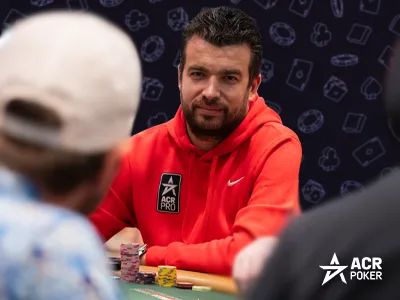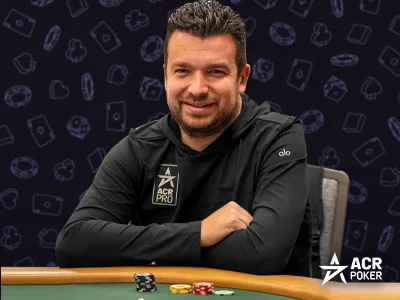Reading opponents means identifying who wants to ladder into a seat and who is willing to gamble Satellite tournaments create a unique kind of pressure, especially near the bubble. Unlike standard events, the goal is not to accumulate all the chips but simply to secure a seat. That shift changes how players think and how
Category: Poker Strategy
Dealing with Tilt and Emotional Control in Short Deck Hold’em
Players who stay calm during swings gain an edge over those who let emotions dictate their decisions Short Deck Hold’em is a fast, volatile game that can test even experienced players’ emotional control. With fewer cards and more frequent big hands, swings happen quickly and often without warning. Managing tilt becomes just as important as
Reading Opponents’ Bet Sizing for Information in Freezeouts
Reading bet sizing in freezeouts is about combining observation with patience In freezeout tournaments, every decision carries extra weight because there are no second chances. That makes bet sizing one of the clearest windows into an opponent’s thinking. Unlike rebuys, players tend to protect their stacks, which often causes sizing choices to reveal comfort, fear,
Expanding Your Opening Range from the Hijack in Texas Hold’em
Expanding from the hijack is about controlled aggression, not automatic looseness Opening from the hijack offers a unique chance to loosen up without drifting into reckless territory. With only three players left to act, you gain more positional leverage than early seats but you still need discipline. The goal is to pressure tighter blinds while
Evolving Your Heads-up Strategy: Adapting Over Time
Strong heads-up players aren’t defined by one strategy; they win by evolving faster than the competition Heads-up poker is a moving target. What works early against an opponent may quickly lose value once patterns are noticed. Success comes from treating the match as a conversation, not a script, and adjusting as new information shows up.
Constructing a Tight and Balanced UTG Opening Range
A well-built UTG opening range isn’t flashy, but it protects you from tough spots later in the hand Constructing a tight and balanced under-the-gun opening range starts with understanding position pressure. UTG acts first before the flop and will face the most resistance after. Because of that, hands chosen here should perform well against multiple
Adjusting to Changing Table Sizes in Short Deck Hold’em
Success in short deck depends on recognizing how fewer seats reshape the game Short Deck Hold’em already plays faster than traditional Texas Hold’em, but changing table sizes add another layer of complexity. Moving from six-handed to four-handed, or even heads-up, shifts hand values, aggression levels, and positional importance. Players who fail to adjust often leak
Timing Your Poker Tournament Rebuys for Strategic Advantage
The best rebuy timing balances structure, opponents, and personal comfort with risk Rebuy tournaments offer players a rare mix of flexibility and risk. Unlike freezeouts, they allow you to recover from early mistakes or bad beats, but only if you manage your timing wisely. Knowing when to rebuy can shape your entire tournament strategy. The
Using Position to Control Pot Size from the Hijack
By balancing aggression with restraint, you protect your stack while still applying pressure Playing from the hijack gives you a unique mix of control and risk. You are close enough to late position to apply pressure, but still early enough that mistakes can inflate pots unnecessarily if you are not careful. The biggest advantage of
The Influence of Cold Decks on Your Long-Term Poker Strategy
Incorporating cold decks into your overall strategy means planning for them, not fearing them Cold decks are one of the most frustrating parts of poker. Long stretches without playable hands can make even disciplined players question their approach. While they feel personal in the moment, cold decks are a normal part of variance and should
Strategic Folding to Lock up a Seat in a Satellite Tournament
Track stack sizes, respect the bubble, and avoid unnecessary risks to improve your chances of securing a seat Satellite tournaments create a different kind of pressure, where survival can matter more than chip accumulation. The goal is simple: finish with enough chips to earn a seat, not to win every pot. Strategic folding becomes a
Optimal Hands to Complete or Raise from the Small Blind
Raising with better hands and folding weak holdings will help you avoid difficult spots Playing from the small blind can be tricky for beginners because you act out of position after the flop. The key decision is whether to complete the blind, raise, or fold. Understanding which hands work best in each spot helps reduce












